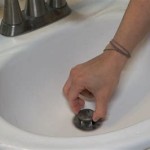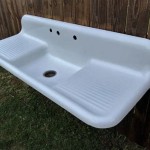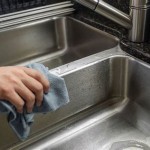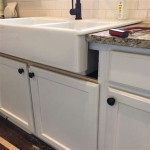Why Does My Bathroom Sink Smell?
Bad smells in the bathroom can be caused by a variety of factors, including the presence of bacteria, mold, mildew, or other organic matter. These sources can create unpleasant odors that can be difficult to eliminate. In this article, we will explore some of the common causes of bathroom sink smells and provide solutions for how to prevent and eliminate them.
Common Causes of Bathroom Sink Smells
1. Bacteria and Organic Matter
Bacteria and organic matter can accumulate in the sink drain and trap, as well as on the surfaces of the sink and faucet. This can create a breeding ground for bacteria, which can produce unpleasant odors. Food particles, hair, and soap scum are common sources of organic matter that can contribute to these smells.
2. Mold and Mildew
Mold and mildew thrive in moist environments, such as the bathroom sink. They can grow on surfaces that are frequently wet or damp, such as the shower curtain, grout, or the underside of the sink. Mold and mildew can produce musty or earthy odors that can be unpleasant and potentially harmful to health.
3. Clogged Drains
Clogged drains can prevent water from flowing properly, which can lead to the accumulation of bacteria, organic matter, and other debris. This can create a foul odor that can spread throughout the bathroom. Hair, soap scum, and other substances can accumulate in the drain and create a blockage.
4. Faulty P-Trap
The P-trap is a U-shaped pipe that is located under the sink. It creates a water seal that prevents sewer gases from escaping into the bathroom. If the P-trap is damaged or improperly installed, it can allow sewer gases to leak into the room, resulting in a foul smell.
Solutions for Preventing and Eliminating Bathroom Sink Smells
1. Regular Cleaning
Regular cleaning is essential for preventing and eliminating bathroom sink smells. Use a disinfectant cleaner to wipe down the surfaces of the sink, faucet, and drain. Be sure to remove any visible debris or buildup. Use a drain cleaner to flush out the drain and remove any clogs.
2. Ventilate the Bathroom
Proper ventilation is important for preventing mold and mildew growth. Open a window or turn on the bathroom fan when showering or bathing to allow moisture to escape. You can also install a bathroom exhaust fan to improve ventilation.
3. Fix Clogged Drains
If you have a clogged drain, it is important to clear it as soon as possible. Use a drain snake or chemical drain cleaner to remove the blockage. Once the drain is clear, run hot water through it to flush out any remaining debris.
4. Check the P-Trap
Inspect the P-trap regularly for any damage or leaks. If you find any cracks or holes, it is important to replace the P-trap to prevent sewer gases from escaping. You can also tighten the nuts that connect the P-trap to the sink and drain to ensure a proper seal.
5. Use Natural Odor Neutralizers
There are several natural odor neutralizers that can be used to eliminate bathroom sink smells. Baking soda, white vinegar, and lemon juice are all effective at absorbing and neutralizing odors. Place a bowl of baking soda in the sink overnight to absorb odors. Pour white vinegar down the drain to flush out bacteria and buildup. Rub a lemon wedge around the drain and sink to freshen the scent.

How To Clean A Stinky Sink Drain Home Repair Tutor

What Causes Bathroom Drains To Smell

Pin On Clean Organize

How Can I Help A Stinky Bathroom Sink Drain Cleaning More Youtube

How To Get Rid Of The Sewer Smell From A Bathroom Terry S Plumbing

Why Does My Bathroom Sink Smell Like Sewer Top Causes

How To Clean Stinky Drains Liquid Plumr

How To Clean A Stinky Sink Drain Home Repair Tutor

Why Your Bathroom Sink Drain Smells

Moldy Smelling Water From Bathroom Faucet Hometalk







